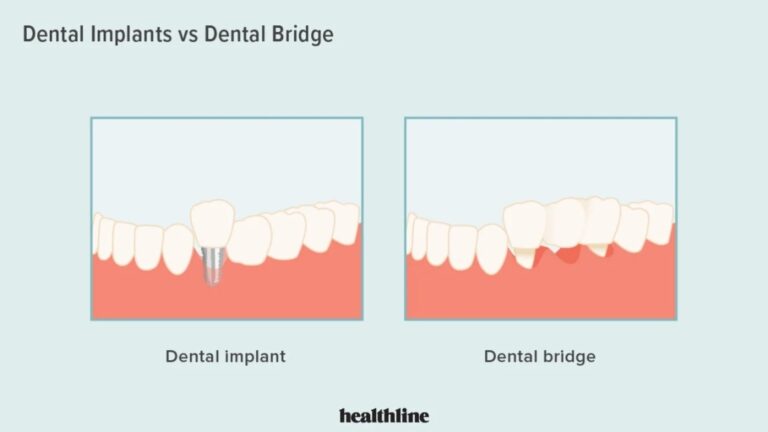When it comes to replacing a missing tooth, two popular options often come up: dental implants and dental bridges. Both dental restorations offer a solution to fill the gap in your smile, but deciding which one is right for you requires personal consideration and advice from a dentist. This article aims to provide you with valuable information about the differences, benefits, disadvantages and cost estimates for both dental implants and dental bridges.
Understanding dental implants and dental bridges
Dental implants are a long-term solution that involves placing a titanium post into the jawbone, duplicating the root of the missing tooth. On the other hand, dental bridges are a type of dental prosthesis that uses adjacent teeth as a support for a false tooth or teeth to bridge the gap.
The procedure: Implants vs Bridges
The procedure for both dental implants and bridges involves multiple visits to the dentist. The implant procedure is more invasive and often requires a healing period between the placement of the implant and the attachment of the artificial tooth. For dental bridges, the procedure involves reshaping the adjacent teeth to fit crowns that will hold the bridge in place.
Advantages and disadvantages
Both dental implants and bridges have their own advantages and disadvantages. Implants are praised for their durability and natural feel. They preserve the jawbone and prevent further bone loss. However, they require a higher initial cost and a longer treatment period. On the other hand, dental bridges are usually less expensive and require less treatment time. But they may need to be replaced after a decade or so, and the preparation process can weaken the abutment teeth.
Cost and maintenance issues
While dental implants can be more expensive initially, many patients find that they are more economical in the long run due to their durability. Dental bridges, although less expensive initially, may need to be replaced over time, increasing their overall cost. In terms of maintenance, both options require good oral hygiene practices. Dental implants can be cared for just like natural teeth, while bridges require a little more attention to cleaning under the bridge.
Expert opinions and patient testimonials
Many dental professionals recommend implants because of their longevity, health benefits, and natural feel. However, the right choice largely depends on the individual’s oral health status, budget and personal preferences. Patient testimonials highlight satisfaction with both treatments, with many appreciating the improved appearance and functionality of their teeth.
In conclusion, the decision between dental implants and dental bridges is a personal one. It is important to consider all factors, including cost, durability, maintenance and potential risks. As always, discussing these options with your dentist is the best way to make an informed decision that fits your needs and circumstances.


